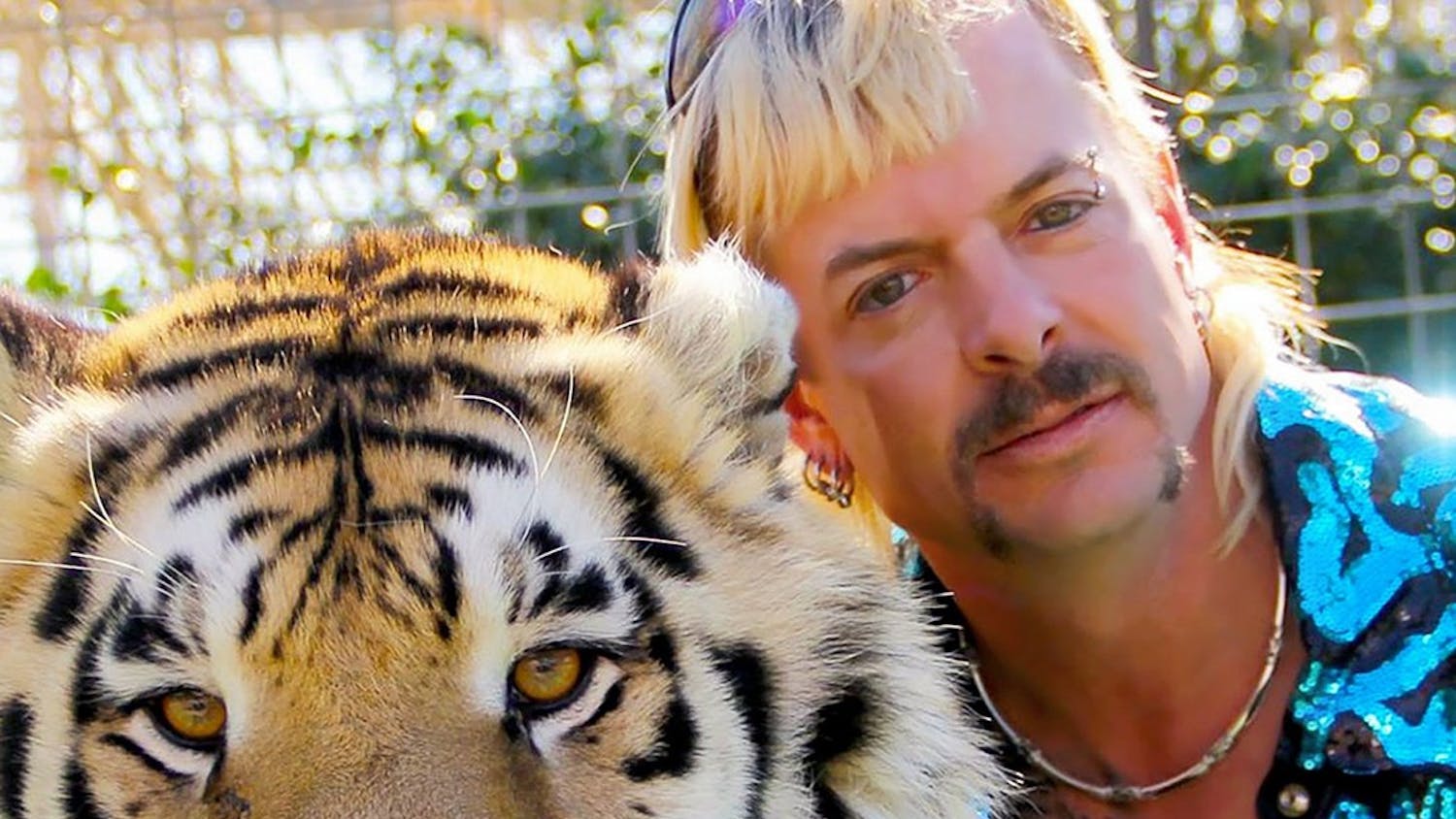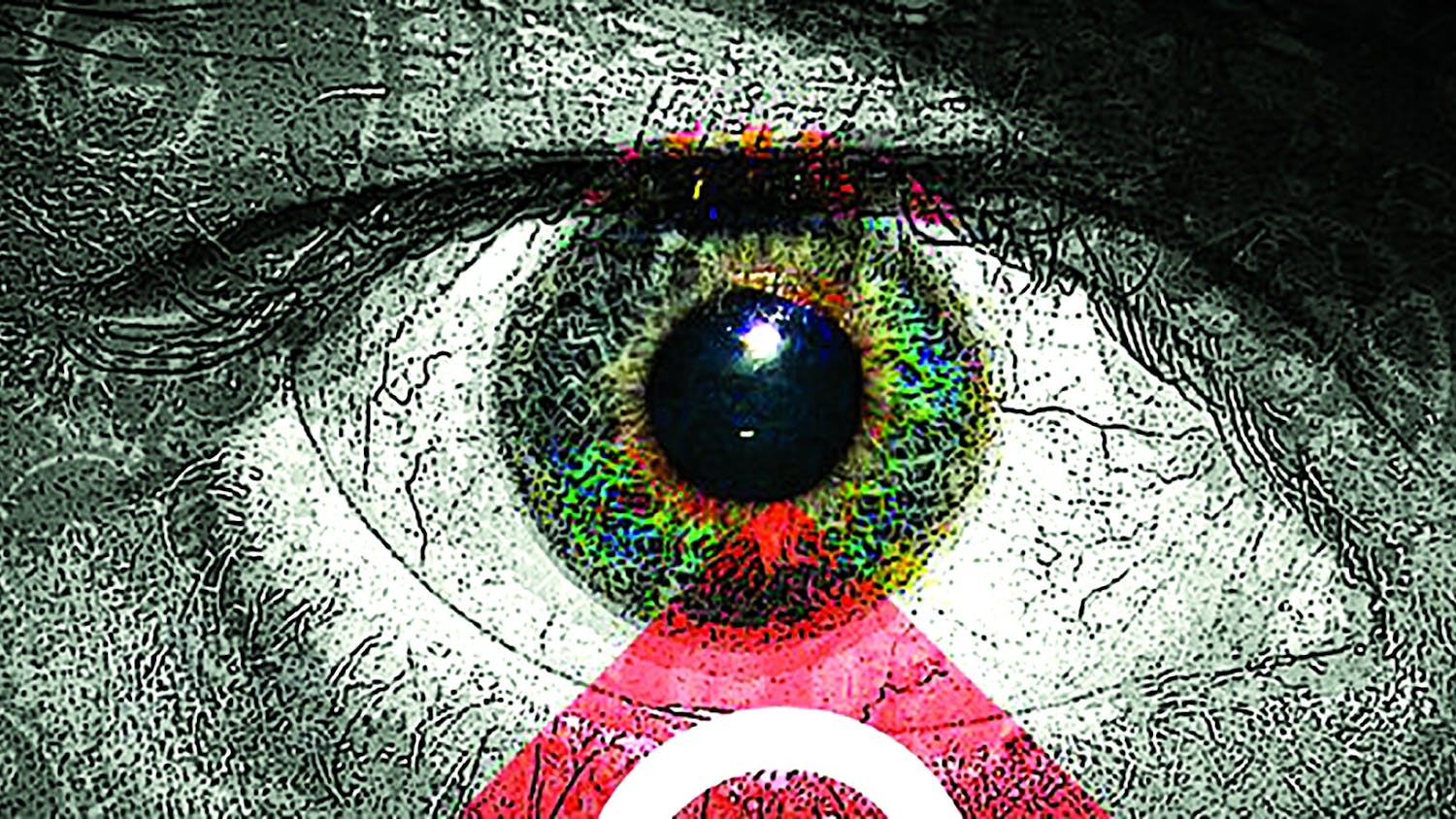The Mountain Goats, the primary musical project of singer-songwriter John Darnielle, have been plenty of things throughout the years. Working with a cast of collaborators, the most consistent for a time being a Panasonic boombox, they started out in the early 90s as an acoustic lo-fi project, releasing albums and cassettes on various small labels. The songs were as terse as they were tense, compressing moments into little sonic shells, carrying the threat of exploding at any second. At the turn of the century their sound collapsed and expanded, and when the Mountain Goats signed to 4AD they added more elements to solidify themselves as a cohesive project, working through variations on themes new and old. It’s always been Darnielle, and, as any fan will tell you, it’s always been much more.
But at first glance, it’d be hard to care much to learn about any of those things. The Mountain Goats, singular, is one of the more unassuming monikers to come by, especially compared to other 90s indie singer-songwriter pseudonyms — Smog, Palace, Destroyer. Darnielle has said it was inspired by a line in “Big Yellow Coat” by Screamin’ Jay Hawkins and the hubris exhibited by jumping mountain goats, as well as its iambic cadence, which, fine; it’s thoughtful at least (and refreshingly nerdy), but also kind of unsatisfying. Whether intentional or not, though, it’s also an anagram for “Got Thou, Mine Satan.” If the word brings to mind one of the band’s most well-known lyrics, it also speaks more broadly to the end that, in one way or another, all the characters in the band’s songs strive towards.
Felt Sick, In A Good Way
And if that sounds pretentious, well—the Mountain Goats started out as a way for a 22 year-old Darnielle to get people to listen to his poetry, for which he’d gotten some national recognition, but was still, nonetheless, poetry. A literary guy with an acoustic guitar, as one might expect, didn’t initially lead to the most interesting music. Taboo IV: The Homecoming, his first cassette release, in 1991, hasn’t been reissued for a reason.
The one that followed, The Hound Chronicles, has been reissued along with another early cassette, Hot Garden Stomp - and they’re more representative of early TMG. The songs are punctual, and they aim to puncture with sentiment, which often gets projected onto the landscape, real or imagined. Darnielle sings in a reedy, high-strung tone, making the desire of his characters to be heard especially transparent. It’s not the strongest template, but the best songs here use it in humorous ways, especially when balanced on rush and repetition, be it in a non-sequitur chant of “let them kill me” in “The Water Song,” or this rushed acknowledgement in “Sun Song”: “And you said how things looked dead around here / Well that’s alright if things look dead around here / ’Cause it’s only a little while longer that things are gonna look dead around here.” Those catch-all titles betray the process of finding a voice, but also an attempt to work with restrictions.
Other series of songs emerged early on, though loosely so at best, like “Orange Ball” and “Standard Bitter Love." The “Pure” series, and more generally the Casio songs on which the guitar is replaced with a clinky keyboard and stock beats, act more as another frame of punctuation than its own thing. More lasting and substantial is the "Going To..." series, named after the sort of mindset where going somewhere else seems like a viable way to effect change. Who is leaving and when it happens, or doesn’t, varies, but something is always on the cusp of changing, whether due to motion or unexpected stasis.
Or both, which is what drives fan favorite “Going to Georgia”: “And you smile as you ease the gun from my hands and I'm / frozen with joy right where I stand.”
More defined is the "Alpha" series, based on the concept of a couple at complete odds but unable to broker the terms of their separation. Many early Mountain Goats songs are centered around romantic distance, and the Alpha couple embody that at its most outsized. Apart from the album dedicated to them, Tallahassee, most of the Alpha songs are identifiable by the word being in the title. One of the exceptions, “Star Dusting,” begins with the disclaimer that “this is a horror story.” Darnielle, an avowed horror fan, explained in a recent NPR interview, “I want that glimmering moment from before the thing you don’t want to see happens. I want that moment of dread.” He had originally planned for the couple to divorce, but never wrote a song mentioning one.
The first Mountain Goats album, 1993’s Zopilote Machine, begins with an "Alpha" series song. It features the couple, alcoholics, relaxing and drinking. The reality is in the forecast: “the low-pressure system brings the breezes in … and I’m holding on,” the last word strung out and strained like a man trying to push back. Darnielle had by this point found his voice, lyrical and otherwise — it’s not as high-strung as on those early cassettes, nor are the songs, although on Zopilote Machine they still tend to lunge forward, perhaps just to stay in place.
The next one, Sweden—it doesn’t take place in Sweden, which is more a geographical construct of distance, but the songs do have alternate Swedish titles. The project breathes more steadily, and sounds fuller, largely thanks to prominent contributions from bassist and backing vocalist Rachel Ware.
Follow-up Nothing for Juice continues in that vein, with a bit of distortion thrown in at times.
Get content from The Daily Lobo delivered to your inbox
The address in the songs from this period is almost always to “you,” and the distance between singer and subject a palpable presence. Sometimes this is done by means of jarring panning, like on “Downtown Seoul,” where a moment flashes with the particulars of the second-person, before drawing back out to find a particular lost; or on “Tahitian Ambrosia Maker,” where baking a coconut cream pie is the only thing to do knowing “the sky coming [is] down to meet you.” Other times the picture remains at a distance until panning in quickly and blurring into abstraction:“I went mining for gold / I struck pure, fresh zinc.” Usually, though, it’s in reverse: "the snow is trapping us and you’re changing, you’re burning and it froze me, the stars are around you and you’re around me and I know why you’re here."
They function as build-ups in miniature, which the deadpan progression might conceal at first. What comes next — explosion or come down, revelation or its consequence—is withheld. Keeping these moments balanced on the cusp of change fills these songs with dread, but sometimes with dignity too. On a song not in the second-person, “The Last Day of Jimi Hendrix’s Life,” a cold glass of water provides enough relief for the moment.
And whether the songs are “going” or not, they’re often bound to the limits of location, no more so than on 1997’s Full Force Galesburg. Due to scheduling conflicts, Peter Hughes filled in for Rachel Ware, which marked the beginning of their collaboration; the record also features contributions on violin and organ, which help to carve out a landscape. Galesburg, Illinois, is, like Sweden or any point on the Mountain Goats map, a representation, but this one based on the idea that “there are a lot of selves inside you, and one of them is about to be left behind as the train heads on towards Iowa.” Centered on that self, it’s more grounded, even if not all the songs take place in that area. But the ground is only as steady as one’s standing. Driving into Western Illinois, the narrator proclaims, “On the day that I forget you / I hope my heart explodes.” In the next song, they’ve settled, hearts unexploded but mouths filled with blood. There’s a rustic quality to the rust, like a veneer of heartland domesticity. It’s a sturdy foundation, and a trap.
On The Coroner’s Gambit, from 2000, that’s pulled out from underneath. Recorded after a friend, Rozz Williams of Christian Death, committed suicide, the boombox hiss hangs like a pall over each song. It starts with a sample of “Haunted House Blues” by Bessie Smith, a technique found on older Mountain Goats records, which, maybe symbolically, folds into distorted downstrokes. The vocals are with it in the red, a unified force, and one that carries menace and weariness alike. Mountain Goats songs had dealt with vengeance before, and used accumulation to get sentiment across, but there’s another dimension here. The last verse:
I am the killer, dressed in pilgrim’s clothing
I’m the hard to find stations on the AM band
I am the white sky high over Tripoli
I am the land mine hidden in the sand
The process of depersonalization says as much about effect as cause: what results will be uncontrollable. Which had always been a constant theme, but on The Coroner’s Gambit that feeling of powerlessness is brought to the forefront. There’s none of the skip or bounce of earlier songs, and the placid dread is augmented by an anticipatory urgency to get past it. “For me,” Darnielle has said, “I get good around The Coroner’s Gambit; everything prior to that is sort of a study.” It echoes remarks he’s also made about The Sunset Tree, and the directness on display here acts as a precursor to what he would do a few albums later.
During this time, the Mountain Goats continued to release cassettes, as well as songs to various compilations. These were collected into three comps that were released in 1999 and reissued in 2002: Protein Source of the Future… Now!, Bitter Melon Farm, and Ghana. They each contain some of their best songs, and are for the most part as consistent as their regular LPs. The second, which spans from 1992 to 1996, is at times my favorite of anything they’ve released, which is perhaps a testament to the cohering vision of the project. That the cover of “The Sign,” a song by Swedish pop group Ace of Base, that ends it has become a fan favorite is probably a better one.
Hail and Farewell, Panasonic
All Hail West Texas was both the end of the lo-fi era and, by some (my) measures, the beginning of an astonishing run of albums between 2002 and 2006. Darnielle has called it the culmination of what he could do with the medium, and the work bears this out, from the career-defining ode to “The Best Ever Death Metal Band in Denton,” to various dry, dusty portraits of melancholy decay befitting the title. In many of the songs there is something missing—foundations of the past, promises for the future, support for the present—and even when there isn’t, like on “Jenny,” the object remains a tenuous center. (Here, not food but a vehicle, with its implications.) The melodies expand and extend where they once served to puncture, and the lyrics focus less on pointed moments than drawing out scenes, held together by the whirring of the boombox, like a wind blowing through. Which is not to say it’s a total left turn: the first track culminates with a pithy end line; the second is full of humorous ones; and the Casio makes an appearance. But if previous Mountain Goats records could be likened to photobooks, AHWT is a series of short stories, which the cover reinforces: “fourteen songs about seven people, two houses, a motorcycle, and a locked treatment facility for adolescent boys.”
The next Mountain Goats album would whittle that down to two people and one house, and this one in Tallahassee, Florida. This happens to be the last ditch stop for the archetypal dysfunctional Alpha Couple, and, continuing the literary analogies, Tallahassee is a novel of sorts documenting (and, in a way, dignifying) their dying, raging flame. Darnielle, along with former collaborators Peter Hughes and Franklin Bruno (both of Nothing Painted Blue), entered the studio to flesh a wide-screen vision of those Alpha songs, and the result is uniquely cinematic. After the title track, a preface betraying feelings tender and bitter, it runs from the “first few desperate hours” of move-in day through various reflections of romantic disarray. The music breathes out and gasps in, suffocated and fighting for space in every scene, eventually reaching a point of pure, bitter catharsis in the glimmering anthem of “No Children.” But that’s the album’s centerpiece, not it’s conclusion; and though the second half is more reflective, finding peace in the prospect of a proper ending, the album draws to a close with an ambiguous scene, and the only song with Alpha in the title. It’s also the last written in their name.
It’d be tempting to frame a narrative around the pivot from grand fictional narrative to personal storytelling, but the idea to write We Shall All Be Healed supposedly came from a spontaneous ad-lib: “Holt Boulevard / between Garey and White.” The first is where a teenage Darnielle once told police, while handcuffed to a hospital bed, he got his heroin (though, of course, not where he actually did); the second “a location where you could walk down the street at some point in the 80s and maybe score. Probably not.” The song it ended up as, “Palmcorder Yajna,” is in some ways representative of the whole album; it alternates between coded language, mundane details provided without context, wishes for release, visions in metaphor, and signs—not on the wall but the floor. The characters are based on Darnielle’s old friends in Portland, and their instability is present from the first song, “Slow West Vultures,” which is driven by a gallup of drums and barely tethered strumming, with muffled voice samples and breaking glass shooting up lines. Parts of the record punch with distortion, others are cloaked with drone. Two of the songs, clean and spare, are built around brief flares of transcendence, which makes the comedown all the more tragic.
WSABH is also a transitional album of sorts, taking the density of Tallahassee, making it more direct, and channeling it towards not-entirely-fictional scenarios. But there’s something uniquely immersive about it in the Mountain Goats catalogue, in its willingness to leave the edges and ambiguity in. It’s imperfect in a way the previous two records aren’t, but in a way, those three are the strongest documents of Darnielle’s storytelling, on the scale of a full album at least. That they each take widely different forms of presentation only makes the run more remarkable.
Eric Ng is a contributor to Daily Lobo Music. He can be reached at music@dailylobo.com






